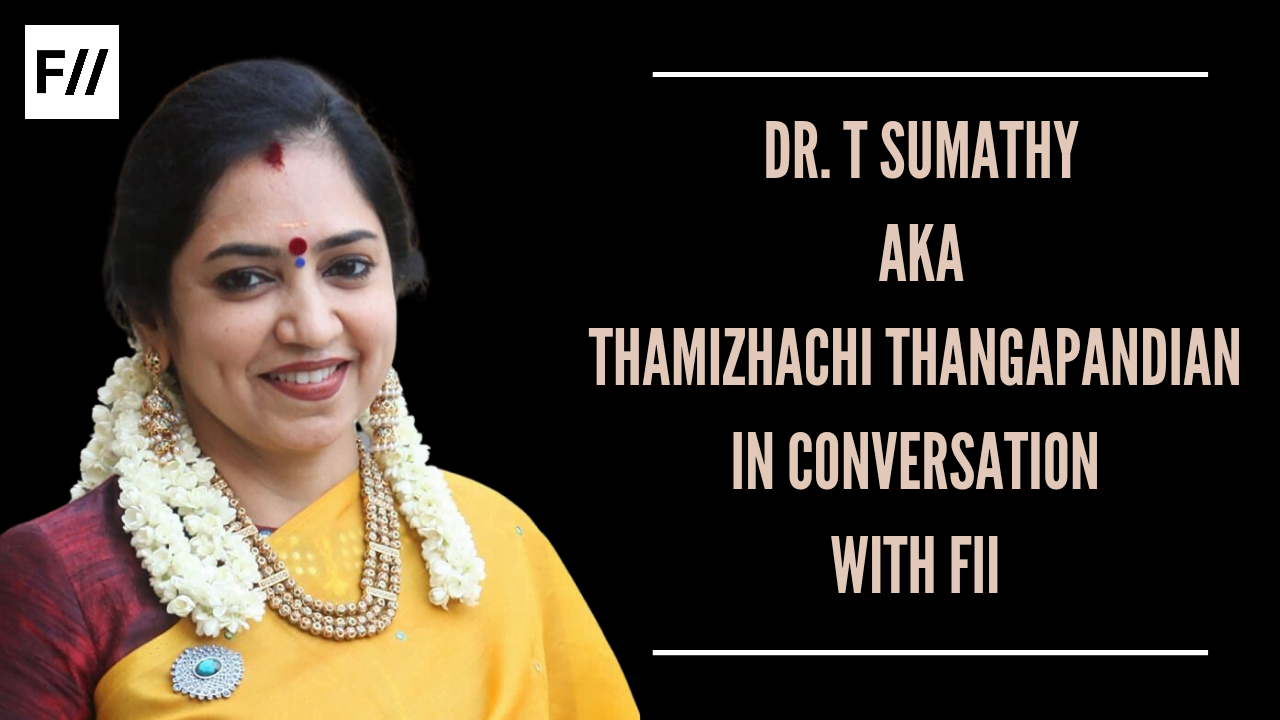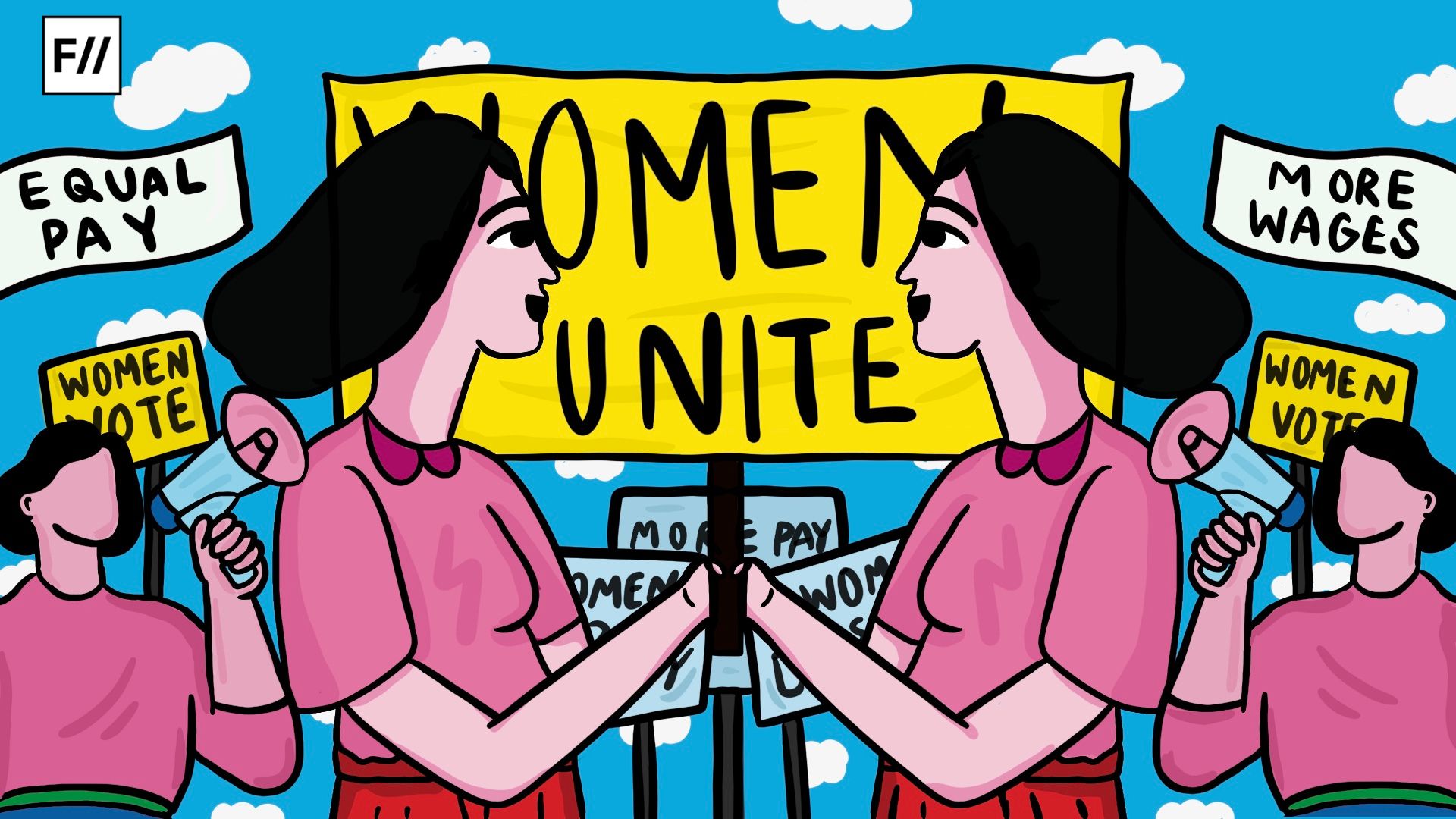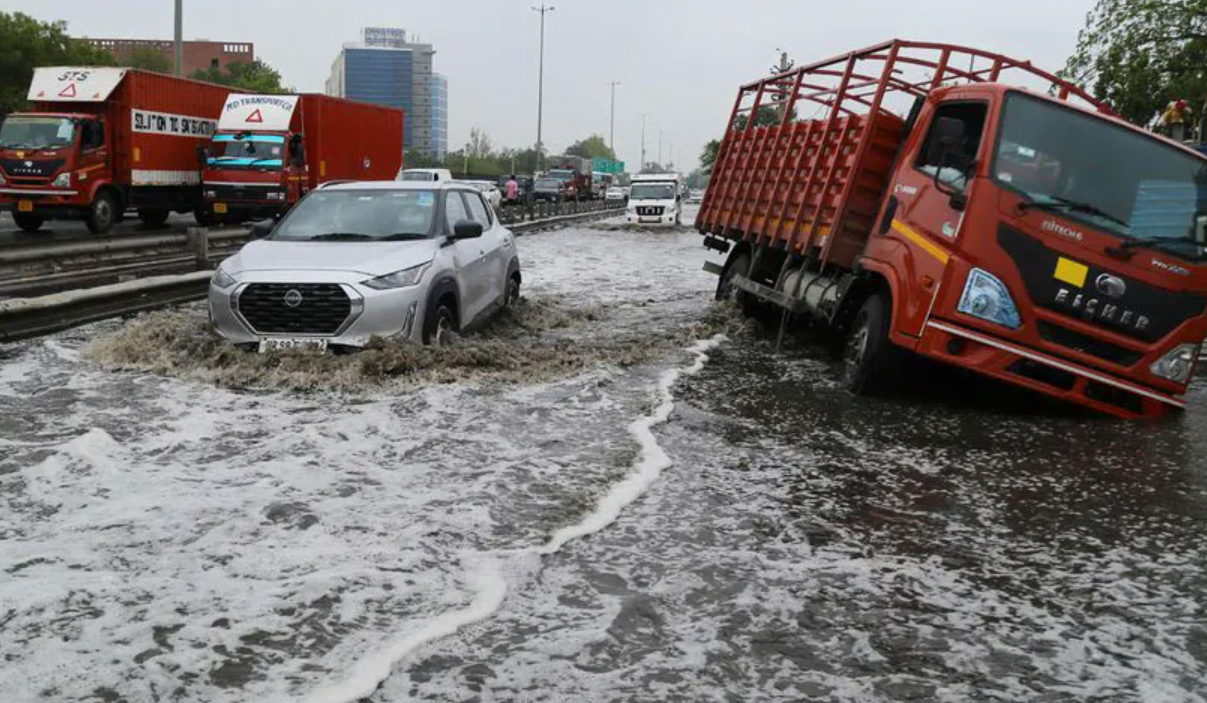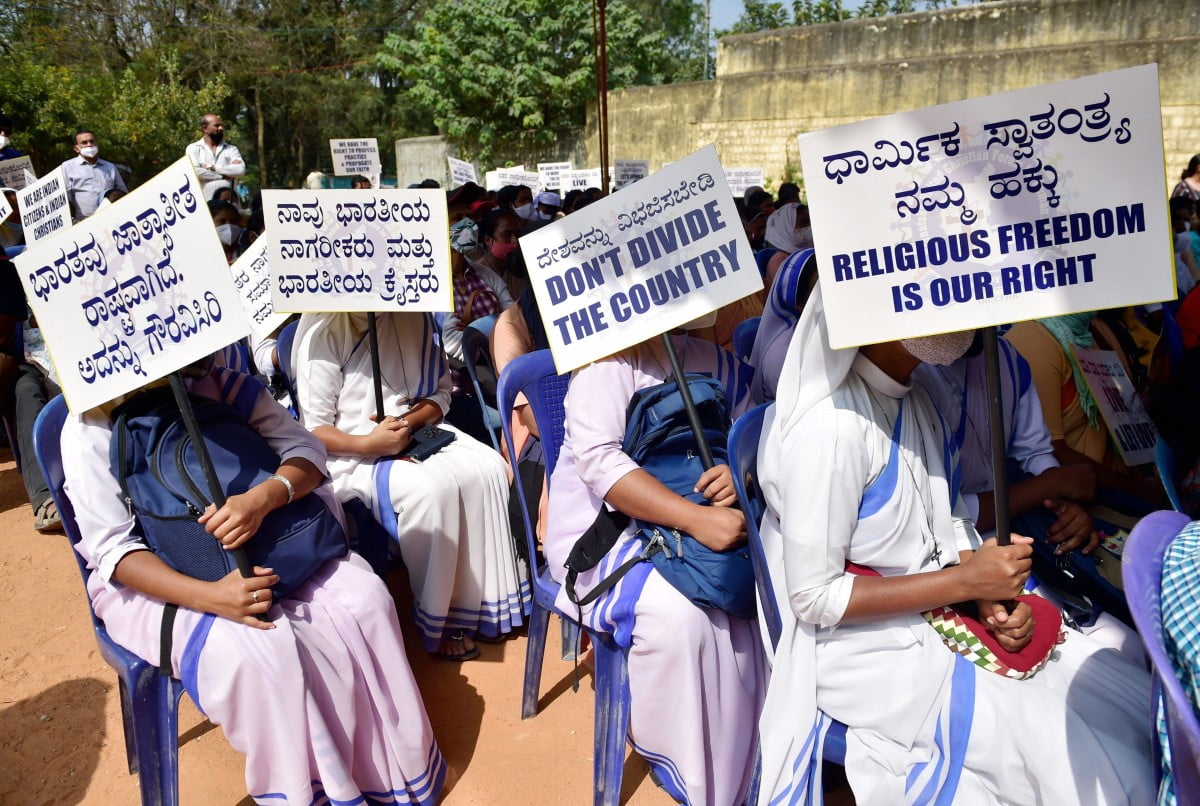Dr. T Sumathy AKA Thamizhachi Thangapandian is the Honourable Member of Parliament from South Chennai, representing the Dravida Munnetra Kazhagam (DMK), the ruling party of Tamil Nadu. Thamizhachi has always been a strong voice addressing gender-based violence and the need to protect minority rights in Tamil Nadu and the country at large.
DMK MP Dr. T Sumathy is also a widely read author. Born and brought up in an agrarian community in southern Tamil Nadu, Dr. T Sumathy’s books, The Throb of Silence, Birthing Hut and Other Stories, Kaalamum Kavithaiyum, Internal Colloquies are quite famous for emphasising the rich Tamil literature and poetry.
FII in conversation with the Honorable MP Dr. T Sumathy AKA Thamizhachi Thangapandian on gender-based violence, institutional murder, caste violence, LGBTQIA+ rights, and Tamil literature and culture.
FII: As a woman in political power, how do you look at the violence perpetrated against gender minorities, particularly against women, in Tamil Nadu, taking the recent incident of sexual abuse that was reported in Kalakshetra? How do you place the #Metoo movement and its function as a collective movement in today’s India?
Dr. T Sumathy: There’s a clear sign of rising atrocities against women in India. The National Crime Records Bureau (NCRB), 2021 has the highest number of such cases in the past 6 years. The rising cases are a grave matter of concern, and what’s more concerning is how the Union Government is quick to dismiss these numbers, stating it is because of higher and better reporting.
Gender-based violence has always been political and legal, and it hasn’t been considered a public health crisis yet. And we haven’t even been successful in the former two, take for example how marital rape is still not criminalised in India. Neither is our public healthcare system equipped enough to tackle this issue. Healthcare workers aren’t trained sufficiently to identify abuse, a holistic approach is hence out of the question. Our focus needs to turn equally towards these cracks in the healthcare system to better address cases of violence against women.
It is certainly unfortunate to note what transpired at Kalakshetra Foundation. It definitely raises a question as to where our daughters are safe. What is even more disheartening is that many students weren’t able to complain for the fear of being sexually mistreated. However, our Chief Minister has been very prompt and stated that quick action would be warranted against those found guilty of sexual harassment in the case. Necessary measures were also placed to ensure the safety of students. Tamil Nadu Commission for Women also submitted a report to the State Government and one of the accused has also been arrested in this regard.
“The #MeToo movement has undoubtedly been instrumental in India in bringing sexual assault and harassment to light. It cut across industries and sectors to pave the way for discussion and reforms of workplace safety and harassment laws. However, we also need to understand how the movement helps protect women, from backgrounds where they are empowered enough to know of the movement and speak up. It leaves out marginalised communities like the Dalit women, queer, disabled, trans and other non-binary people.”
Dr. T Sumathy
In this context, the #MeToo movement has undoubtedly been instrumental in India in bringing sexual assault and harassment to light. It cut across industries and sectors to pave the way for discussion and reforms of workplace safety and harassment laws. The Union Government modified the POSH Act to expand definitions, and extend time limits for filing complaints and protection norms.
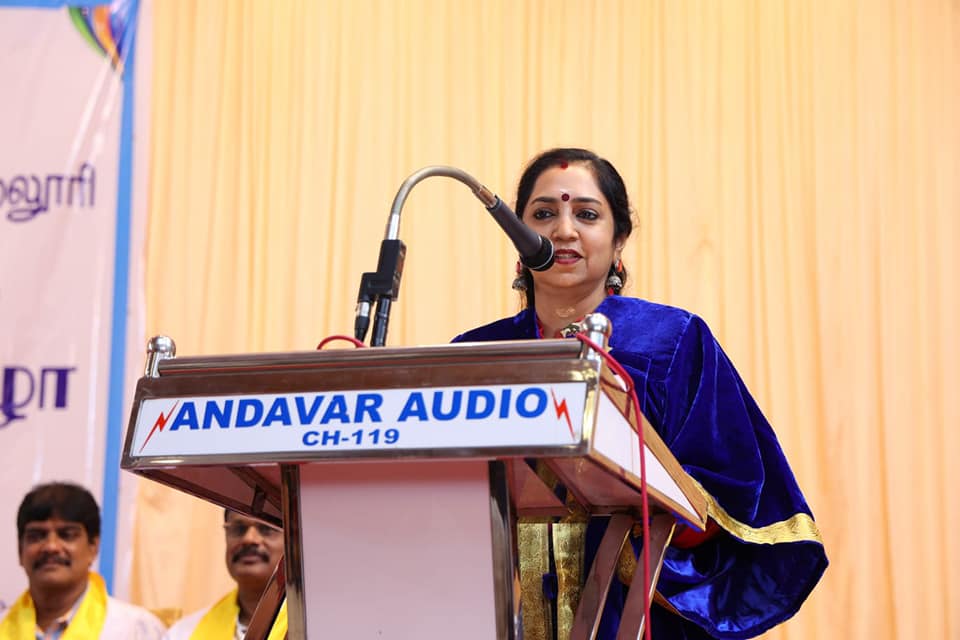
Source: Facebook
However, we also need to understand how the movement helps protect women, from backgrounds where they are empowered enough to know of the movement and speak up. It leaves out marginalised communities like Dalit women, queer, disabled, trans and other non-binary people. It is equally important to focus on this area of criticism to ensure the increased success of this movement in India.
FII: It was a first in the country, that the ruling government (The Department of Social Welfare and Women Empowerment notified the terms) of Tamil Nadu published a glossary of terms to address the LGBTQIA+ community members and to introduce a transgender welfare policy. This is a big leap in the history of India where gender minorities are still attacked physically, mentally and verbally. How do you analyse the progress of Tamil Nadu as a gender-sensitive state?
Dr. T Sumathy: LGBTQIA+ rights in Tamil Nadu are the most progressive among all the states, which is undebatable. Starting from Kalaignar to our present Chief Minister, M.K. Stalin has taken significant steps towards strengthening the LGBTQIA+ community. During Dr. Kalaingnar ’s rule in 2008, Tamil Nadu established the country’s first-ever Transgender Person’s Welfare Board. Our present government has framed the Transgender Person’s (Protection of Rights) Rules and taken steps to incorporate issues relating to the LGBTQIA+ community into the curriculum and to create awareness among the student community.
“Irrespective of several welfare measures taken for the community, there is violence directed towards their sexuality, gender identity, or gender expression. Many Western countries classify violence against the LGBTQIA+ community as a hate crime. The struggles of the community are real, and they can be surmounted with the support of affirmative action by the state in the form of reservation in education and public employment. In that case, Tamil Nadu has made commendable strides in protecting the LGBTQA+ community.”
Dr. T Sumathy
Irrespective of several welfare measures taken for the community, there is violence directed towards their sexuality, gender identity, or gender expression. Many Western countries classify violence against the LGBTQIA+ community as a hate crime. The struggles of the community are real, and they can be surmounted with the support of affirmative action by the state in the form of reservation in education and public employment. In that case, Tamil Nadu has made commendable strides in protecting the LGBTQA+ community.
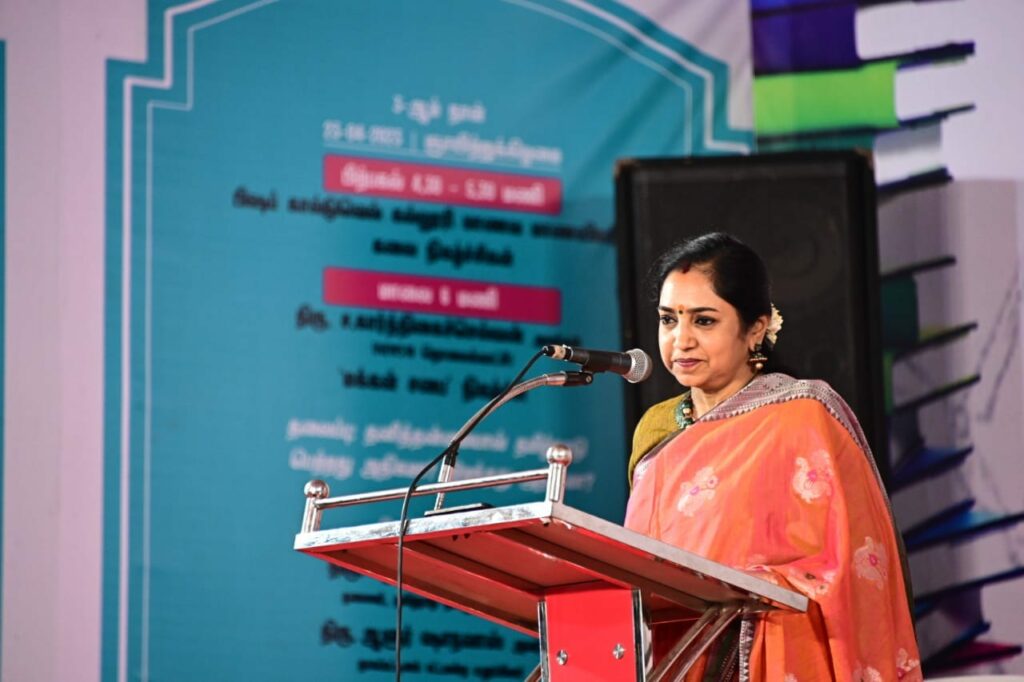
A recent study by Mckinsey that measures gender inequality in the workforce places Tamil Nadu and Kerala among the best large states in India for gender parity. The Dravidian model of government has made sure there are consistent policy interventions in the state. In the recently held 46th Chennai Book Fair 2023, a stall was allocated for the queer community. This was the first time their publishing house, which represents the queer community, has put up a stall at the prestigious event that had more than 1000 stalls. This shows Tamil Nadu’s push for gender equality, which is entangled with the inception of the Dravidian movement.
FII: As a teacher and politician, how do you look at the institutional violence that happened recently in IIT Madras and other major campuses in India, where the victim is mostly from a marginalised community like Fathima Latheef who died by suicide in the year 2019? What, according to you, can be the reason behind such incidents in Indian institutions?
Dr. T Sumathy: Cases of institutional violence are at their core an infringement of human rights. They highlight how poorly our higher educational institutions have been largely inept at dealing with student grievances. Institutions of higher education need to be places that inculcate a sense of critical thinking, independence, and diverse views among students. What they are in reality are breeding grounds for the deepening of fault lines in the caste structure.
Fathima Latheef’s has not been a case in isolation. To this day in 2023, we keep hearing about cases similar to hers. And when these cases come from national institutions and universities like IITs, honestly what hope can we have for local institutions? It is sad that our awakening, uproar and action are selective and lackadaisical in their case. Such cases don’t even find sufficient takers in mainstream media or civil society circles. Ruling political establishments do well to neglect such cases or provide symbolic lip service at most when implored.
In the last decade, there were more than 40 cases of scheduled caste students dying by suicide in some of the major academic institutions. Committee reports also demonstrate sufficient evidence of the difficulties and harassment marginalised communities go through when pursuing education.
“Institutions of excellence are quick to dismiss the very presence of caste-based violence and harassment even in the most evident cases. They keep suggesting the victim’s lack of confidence, inability to cope with the environment and academic pressures as reasons for not being able to survive in ‘competitive’ environments. On-ground reality shows how these students are mocked for their socio-economic backgrounds, their language skills, taunted for making it into colleges due to quotas and even chided and punished for wanting to compete against their ‘upper-caste’ counterparts.”
Dr. T Sumathy
Institutions of excellence are quick to dismiss the very presence of caste-based violence and harassment even in the most evident cases. They keep suggesting the victim’s lack of confidence, inability to cope with the environment and academic pressures as reasons for not being able to survive in ‘competitive’ environments.
On-ground reality shows how these students are mocked for their socio-economic backgrounds, their language skills, taunted for making it into colleges due to quotas and even chided and punished for wanting to compete against their ‘upper-caste’ counterparts. Until the uproar for justice catches the attention of many, these institutions are nonchalant enough to not even order impartial probes into these deaths. Striking the issue at its root is something we can safely say our institutions are incompetent at.
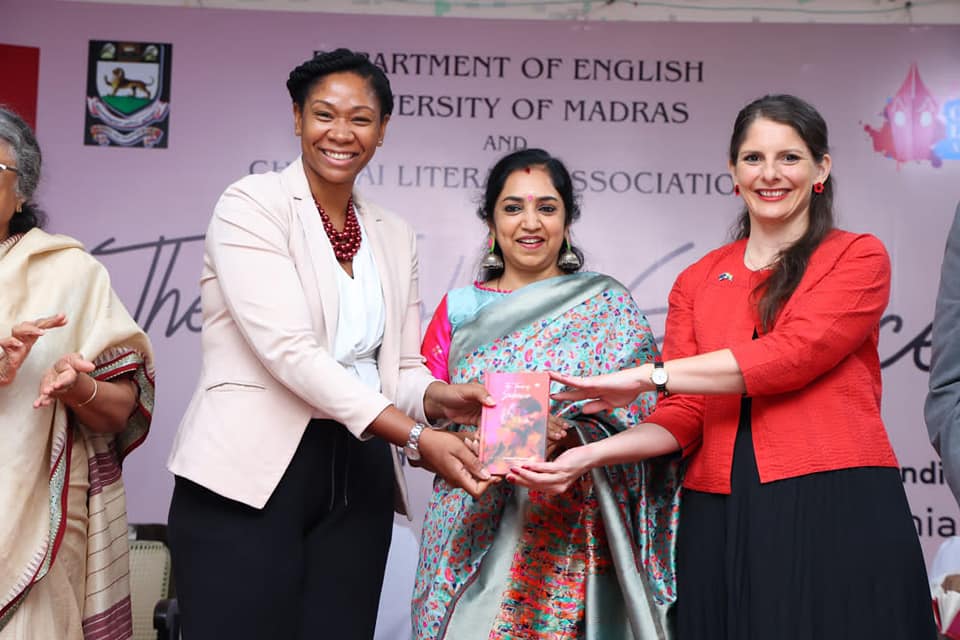
These prestigious institutions do admit SC/ST students in order to fulfil the constitutional mandate, but they lack the deeper awareness necessary to uphold social justice principles. Institutional authorities frequently demonstrate their incompetence to stop caste prejudice or to come up with a workable answer to such accusations. Importantly, academic institutions lack institutional mechanisms to examine compartmentalised caste relationships and their disastrous impact on campus life. In order to address issues of differential treatment, the institutions are unaware of any procedural rules that should be put in place as remedial measures.
“Internal institutional tools to address caste prejudice, such as the SC/ST Cell in such institutions, are ineffective or rarely have the authority to do so. Equal protection for Dalit students either by executing an amendment in the current Atrocity Act or by evoking a new legislation specifically for the protection of Dalit students’ rights in academic institutions needs to be provided.”
Dr. T Sumathy
Internal institutional tools to address caste prejudice, such as the SC/ST Cell in such institutions, are ineffective or rarely have the authority to do so. Equal protection for Dalit students either by executing an amendment in the current Atrocity Act or by evoking a new legislation specifically for the protection of Dalit students’ rights in academic institutions needs to be provided.
FII: Your mention of Karisal literature in the foreword section of ‘Birthing Hut and Other Stories’ lit a spark in me. Can you explain more about Karisal literature and how you place it in Tamil literature and culture? Tamil language and literature have received global attention, especially in places like Harvard University, with its essence and relevance being acknowledged by the international community. How do you feel about this?
Dr. T Sumathy: I’m from an agrarian community in southern Tamil Nadu – a village called Mallanginaru, a Karisal land which is surrounded by parched, black arid dust and experiences sweltering summers for most of the year. In essence, everyone’s life is connected with others. It’s an agrarian community where people share their joys, sorrows, and other emotions with one another. So, connecting in some way with fellow human beings as well as household pets, flora, and fauna was a part of my early years. Karisal literature, in this sense, has been about expressing the beauty, grace and resilience of my Karisal region from Tamil Nadu.
“When I grew up, I decided to use poetry as my medium of expression to express my inner sufferings, hopes, fears, and dreams, and it’s actually difficult. My humane connection to my Karisal women, my local women who are connected to one another through our regional cuisine, culture, indigenous practices, arts, music, and deities, is particularly compelling. I wanted all of these things to be connected and then express it through poetry.”
Dr. T Sumathy
When I grew up, I decided to use poetry as my medium of expression to express my inner sufferings, hopes, fears, and dreams, and it’s actually difficult. My humane connection to my Karisal women, my local women who are connected to one another through our regional cuisine, culture, indigenous practices, arts, music, and deities, is particularly compelling. I wanted all of these things to be connected and then express it through poetry.
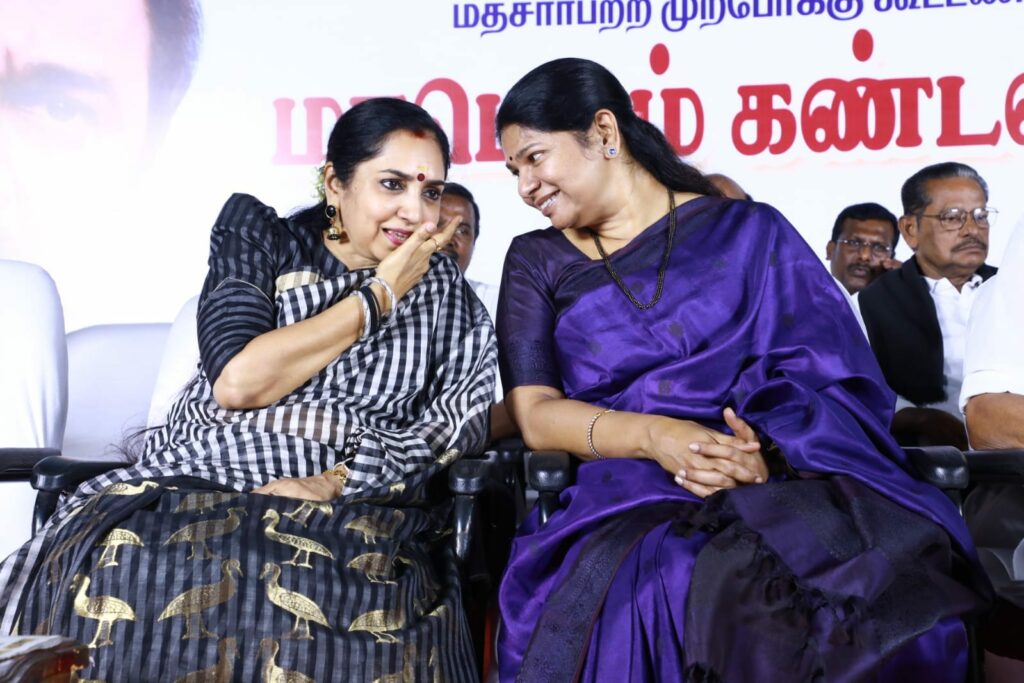
Source: Facebook
The tradition of ‘thinai‘, or the division of lands into kurinji, mullai, marutam, neital, and palai, is unique to Tamil culture. Additionally, each classification of this land has its own population that is referred to by their line of work rather than in the varna ashrama sense. You must exercise extreme caution in that. Kurunji, for instance, is a mountainous region with mountainous scenery all around it. Therefore, people will be interested in agriculture or something similar. As a result, there will always be a god, bird, animal, or flower unique to that region.
In Tamil culture, we have a proud tradition of dwelling in one of five types of lands. The thinai code refers to that. It refers to the idea of splitting up land in accordance with the seasons, different types of crops, and people’s cultural customs. Thus, it falls under the broad category of Tamil culture. The soil I come from, though, is uniquely black; we refer to it as karisalman, and we have developed our own dialectics to express ourselves in it.
My poetry serves as sort of an ambassador for bringing a foreign reader or reader from somewhere else to my home country; learning my accent, learning my crops, learning my seasons, learning the manner of life with which my people were accustomed, and lots of challenges. Even though there is scarce rain and adversity is the term my Karisal women carry with them, they nevertheless confront life with a huge smile on their cheeks. My poetry serves as a powerful vehicle for the ideas I want to convey to the world.
“Tamil language and literature have a rich literary legacy dating back to 3000 years ago. The Sangam poems, the early epic Silapadikaram, and the ancient critical literary work Tholkappiam and Thirukural, do not grow on arid soil. It is indeed a matter of pride to see the Tamil language and literature being acknowledged on a global level.”
Dr. T Sumathy
Tamil language and literature have a rich literary legacy dating back to 3000 years ago. The Sangam poems, the early epic Silapadikaram, and the ancient critical literary work Tholkappiam and Thirukural, do not grow on arid soil. It is indeed a matter of pride to see the Tamil language and literature being acknowledged on a global level.
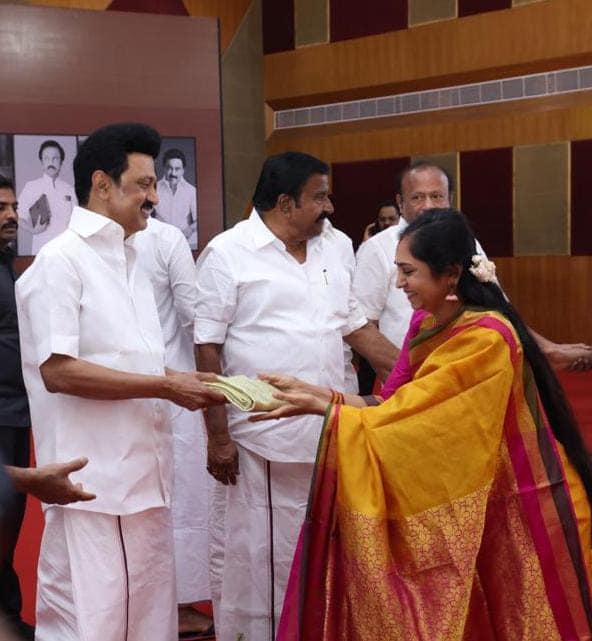
Source: Facebook
The International Booker Prize’s selection of a Tamil novel serves as a confirmation of the growing interest in Tamil literature, which is shown in the English translations of works by Tamil authors like Perumal Murugan and all subaltern writings. Many previously obscure literary works are now reaching wider audiences as a result of the rising popularity of translations and the growing appreciation of the value of regional literature.
FII: It was in late January this year, after 80 years of cultural and social resistance, members of the Dalit community entered a temple in Tiruvannamalai, Tamil Nadu. While there is a larger revolution happening on one side of the state, there are daily reports on Dalit murders, lynchings and killings including the recent one in Sriperumbudur in Tamil Nadu’s Kancheepuram district, where three Dalit men were murdered while cleaning a septic tank. How do you look at this issue where basic human rights including the right to life guaranteed under Article 21 of the Indian constitution are denied to the Dalit community?
Dr. T Sumathy: The Dravidian worldview contains the basic concept of social justice and the self-respect movement. The same has served as DMK’s compass both when we were in the State Government’s opposition and when we were in power. To reclaim the rights of oppressed community, has been one of the major tenets of the Dravidian movement.
Thanthai Periyar, an iconoclast, was forever strong in raising his voice against caste-led oppression. DMK affirmed its commitment to social justice by setting up Commissions for Backward Classes, increasing reservation for scheduled castes from 15% to 18% back in 1969 when Kalaignar became the Chief Minister and Tamil Nadu has been the state with the highest number of scheduled castes/tribes entrepreneurs as well.
“We do acknowledge there are sporadic events of violence against the Dalit community. However, the State Government has also been prompt in terms of being responsive and delivering action. DMK is committed to delivering the ideals of social justice and equality. Our Chief Minister Thalapathy M.K. Stalin administered the pledge against untouchability which is undertaken every year as a mark of respect to Mahatma Gandhi.”
Dr. T Sumathy
We do acknowledge there are sporadic events of violence against the Dalit community. However, the State Government has also been prompt in terms of being responsive and delivering action. DMK is committed to delivering the ideals of social justice and equality. Our Chief Minister Thalapathy M.K. Stalin administered the pledge against untouchability which is undertaken every year as a mark of respect to Mahatma Gandhi. It is the party’s strong stance against such atrocities that a party functionary who was involved in such an unscrupulous practice was suspended quickly, setting a clear example and giving a strong message.
FII: How do you see yourself as a woman in power, from being a lecturer teaching students to representing people as the DMK MP today, how long was the journey to equality and representation, in politics and life?
Dr. T Sumathy: The journey from being a professor to a full-time politician doesn’t actually make much of a difference when it comes to shifting of power. I have always been associated with students and my raw material is people. Now here it is the concerns, the rights, the anxieties of the people. I need to be concerned about that as a politician.
I always focus my attention and all my thoughts and dreams, all were oriented towards students when I was a professor and now it’s shifted to the actual public. My constituents roughly, but generally all the people of our state. So, by shifting of power I mean not the chair, I mean the rights of the students or the public. Right now I am in a position to talk regarding the areas where I can connect with the public as well as understand their pulse to eventually raise issues concerning their rights. I would say this doesn’t literally make a difference in both arenas. I have been travelling with the public, maybe with different sections of people, earlier it was students, now it’s the public.
“When it comes to the journey of equality and representation, it has its own ups and downs. I was really articulate in my life as a professor, to make students understand their rights, speak about them and the need to create spaces for themselves, especially women in the academic atmosphere. Here, we focus more on women’s rights, the spaces for women, especially the right for women to sit in the right places to make decisions, decide what should be for them and to have equal representation. It doesn’t mean these are two different paths.”
Dr. T Sumathy
When it comes to the journey of equality and representation, it has its own ups and downs. I was really articulate in my life as a professor, to make students understand their rights, speak about them and the need to create spaces for themselves, especially women in the academic atmosphere. Here, we focus more on women’s rights, the spaces for women, especially the right for women to sit in the right places to make decisions, decide what should be for them and to have equal representation. It doesn’t mean these are two different paths.
I was travelling towards the same goals through two different paths. It is lovely to note in retrospect that I have been advocating the rights of the students as well as making them understand their existential questions and address their pressing issues. Here, it’s in a wider arena. Now with the public, especially women and education, health, voting rights, hygiene, their right to choose to be in a marriage or a relationship as well as the rights of all the marginalised communities like the LGBTQIA+ community. All these issues are important and closer to my heart in different capacities but focused on the same level of advocacy.
FII: What do you think is relevant and urgent to focus on, in order to bring equality and dignity for all, among the Tamil community, especially for Tamil women?
Dr. T Sumathy: Tracing back to our Tamil culture as described in Sangam literature, women were given special respect and were treated equally. The Tamil community and culture has always been a pioneer when it comes to women’s rights and it’s a matriarchal society. Tamil women have faced hurdles that are arduous, but their grit and determination are unbeatable. Tamil Nadu has had a long and flourishing history of producing beacons of progress. Be it in the field of medicine, education, or journalism, women from Tamil Nadu have braved patriarchy, conventional roles as well as financial hurdles to shine in their respective fields.
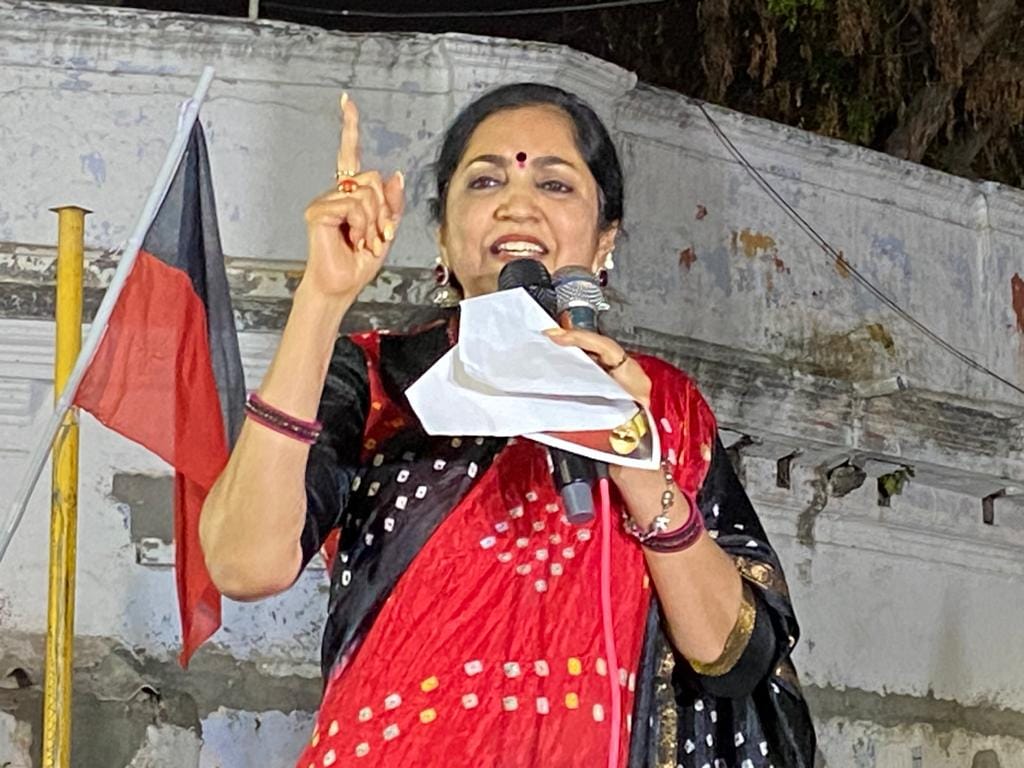
As a Member of Parliament, I would say the most relevant and urgent focus should be the commitment to effectively combat violence against women, addressing the root causes of gender inequality and sexism and taking measures to counter the increasing backlash against women’s rights. Equality and human dignity are integral to human rights and a fundamental element of democracy.
Tamil Nadu has always been a true advocate of women’s empowerment, which will naturally ensure equality and dignity for women. As per the 2011 census, the female literacy rate is 73.44% which is a clear indication of their commitment to education. The DMK government under the leadership of Chief Minister M.K.Stalin has ensured a society with no place for dominance and a gender-neutral society where women will have socio-political, economic and cultural rights. I would like to conclude by saying, humanity’s capacity to thrive depends on women, so creating a space that treats women equally with dignity and respect is the duty and responsibility of every individual in this society.
FII thanks DR. T Sumathy for her time and illuminating insights into her work. You can follow her on Instagram and Twitter.
